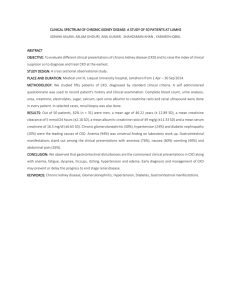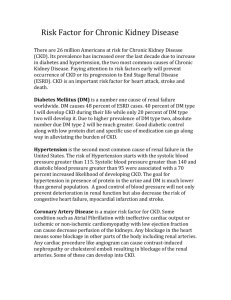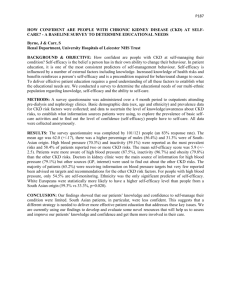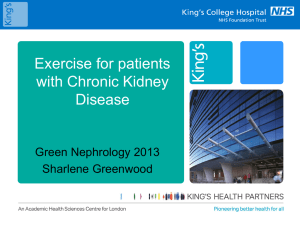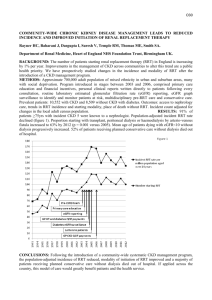Chronic Kidney Disease (CKD) is a major public health problem
advertisement
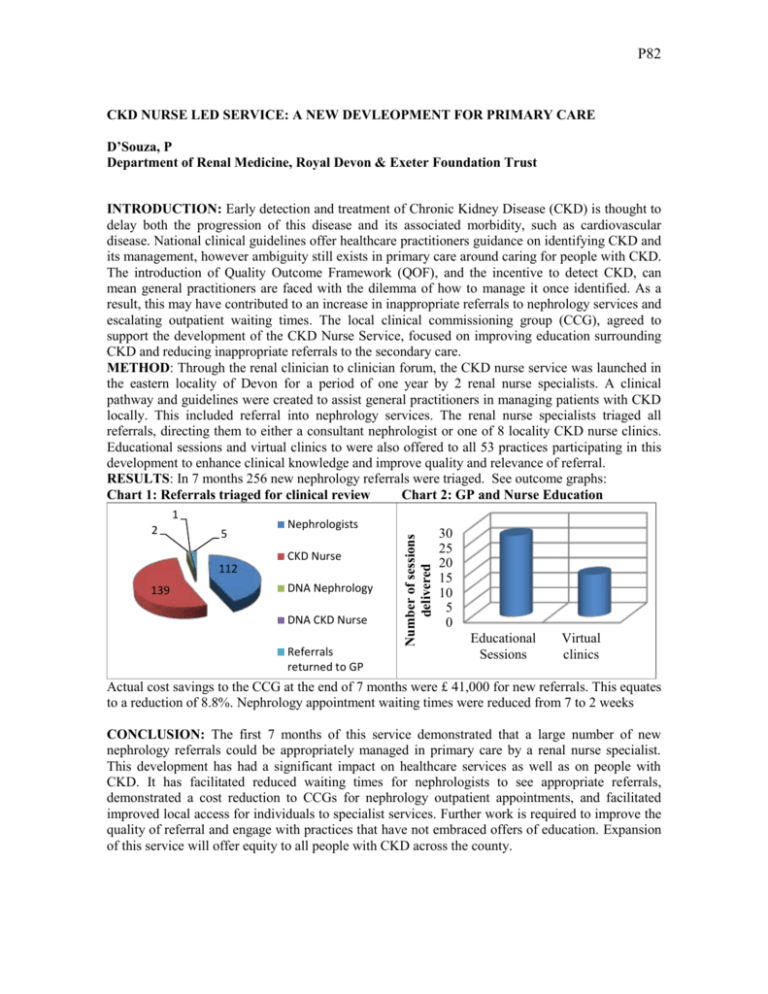
P82 CKD NURSE LED SERVICE: A NEW DEVLEOPMENT FOR PRIMARY CARE D’Souza, P Department of Renal Medicine, Royal Devon & Exeter Foundation Trust INTRODUCTION: Early detection and treatment of Chronic Kidney Disease (CKD) is thought to delay both the progression of this disease and its associated morbidity, such as cardiovascular disease. National clinical guidelines offer healthcare practitioners guidance on identifying CKD and its management, however ambiguity still exists in primary care around caring for people with CKD. The introduction of Quality Outcome Framework (QOF), and the incentive to detect CKD, can mean general practitioners are faced with the dilemma of how to manage it once identified. As a result, this may have contributed to an increase in inappropriate referrals to nephrology services and escalating outpatient waiting times. The local clinical commissioning group (CCG), agreed to support the development of the CKD Nurse Service, focused on improving education surrounding CKD and reducing inappropriate referrals to the secondary care. METHOD: Through the renal clinician to clinician forum, the CKD nurse service was launched in the eastern locality of Devon for a period of one year by 2 renal nurse specialists. A clinical pathway and guidelines were created to assist general practitioners in managing patients with CKD locally. This included referral into nephrology services. The renal nurse specialists triaged all referrals, directing them to either a consultant nephrologist or one of 8 locality CKD nurse clinics. Educational sessions and virtual clinics to were also offered to all 53 practices participating in this development to enhance clinical knowledge and improve quality and relevance of referral. RESULTS: In 7 months 256 new nephrology referrals were triaged. See outcome graphs: Chart 1: Referrals triaged for clinical review Chart 2: GP and Nurse Education 5 Nephrologists CKD Nurse 112 139 DNA Nephrology DNA CKD Nurse Referrals returned to GP Number of sessions delivered 1 2 30 25 20 15 10 5 0 Educational Sessions Virtual clinics Actual cost savings to the CCG at the end of 7 months were £ 41,000 for new referrals. This equates to a reduction of 8.8%. Nephrology appointment waiting times were reduced from 7 to 2 weeks CONCLUSION: The first 7 months of this service demonstrated that a large number of new nephrology referrals could be appropriately managed in primary care by a renal nurse specialist. This development has had a significant impact on healthcare services as well as on people with CKD. It has facilitated reduced waiting times for nephrologists to see appropriate referrals, demonstrated a cost reduction to CCGs for nephrology outpatient appointments, and facilitated improved local access for individuals to specialist services. Further work is required to improve the quality of referral and engage with practices that have not embraced offers of education. Expansion of this service will offer equity to all people with CKD across the county.

